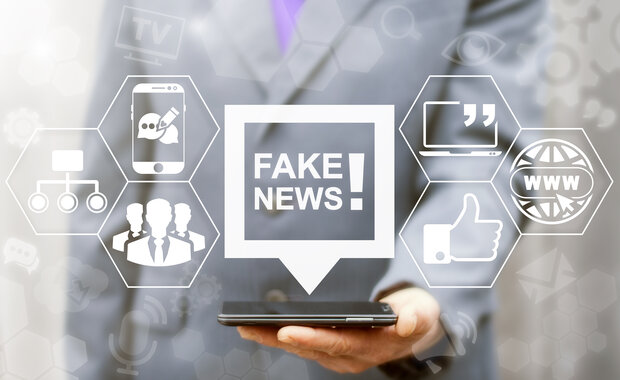In fact, competition and cooperation between these players are classified in the infrastructure networks and control of data in cyberspace. For instance Cyber-attacks, cyber espionage and botnets are tools of contestation and cyber dialogue between states is one example of cooperation among states. This space has benefits and drawbacks for democracy in the world. In this essay, the writer considers highlighting one of the most significant challenges against states and democratic governments, namely fake news that is created from the misuse of digital space.
In fact, fake news has consequences in and through cyberspace. In cyberspace for instance by clicking on fake news you may be giving a chance to hackers to infect user computers or mobile phones with malicious software. As well, this issue creates problems through cyberspace to another aspect of political life. On the other hand, government functions have been become woven together and each function affects another one. For example, when a government is faced with political legitimacy challenge it could not manage the environment, economic and healthcare challenges efficiently and so on. Fake news targets the legitimacy of government, especially in a critical situation, governments do need to have the legitimacy to solve the problem but governments are disrupted by fake news
After the US presidential election in 2016 and Brexit referendum, fake news and disinformation have been highlighted seriously in political terminology. Also, digital misinformation has been designated as a major challenge of global governance and the cause of part of the limitation of freedom of speech by the 2018 report of World Economic Forum. Under the final report of the 2017 Munich security conference most powerful and richest democracies like Germany and France have been influenced by mass fake news. In Southeast Asia, the political utilization of fake news has affected on the recent election in Indonesia and fueled post-election protests in Jakarta. Therefore fake news is speared in the world and is transformed as a global topic. For this reason, the UN has interfered with this issue. In this regard, the UN Secretary-General has sent a message to High- level conference on “the Danger of Disinformation" mentioning that new technologies are sometimes used to mislead public opinion which is a threat to people's lives, health, and security. The European commission revived a self-reporting system to make sure that tech companies move out false coronavirus content. In the latest Taiwan presidential election, some sources claimed that this election was threatened by fake news.
The multi-stakeholder approach could have an effect on fake news. These days disinformation about the coronavirus outbreak is spreading as fast as the virus, this fake news is about how the virus originated. What causes it and how it is spread.
States in cyberspace are competing with each other in many aspects. Some of the international reports like the Munich final report in 2017, the World Economic Forum, the recent Indonesia election, and the World Health Organization recognized fake news as a major problem. Cyberspace is a decentralized space that government and non-government actors influence in that also government and non-government actors are in the struggle of power so it is impossible to resolve this problem but we can manage it by choosing a multi-stakeholder approach. The private sector and international organizations should cooperate with each other because all of the states will be faced with it soon. But the best action to combating this problem is increasing the digital literacy of people in the world.
